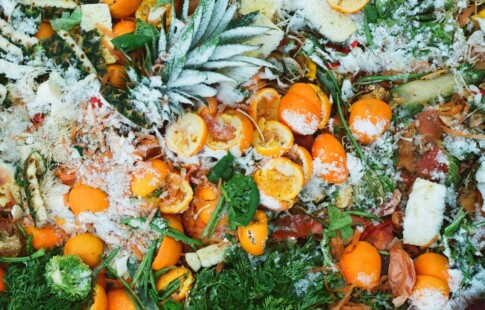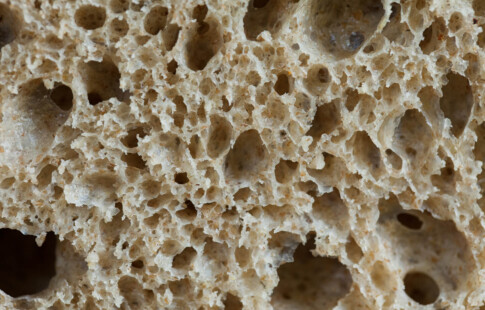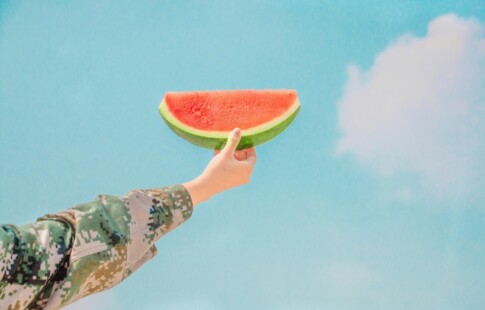
4 Problems With Organic Farming
We are reader-supported. When you buy through links on our site, we may earn affiliate commission.
Organic farming is a modern ideal. The term “organic” is a buzzword for health-conscious and eco-aware individuals. It is essential to question why there is a cultural assumption that organic equates to environmental and physical wellness because organic farming is not perfect. While organic farming has benefits, pointing out its flaws is essential for improving the practice for people and the planet. What are some of the problems associated with organic farming to make the conversation more accurate?
What Is Organic Farming?
Understanding the problems with organic farming requires a brief on what constitutes this agricultural style. Simply put, organic farming is an agricultural methodology that focuses on organic crop growth. No pesticides, herbicides, fertilizers, or chemicals are allowed in these setups. It became popular in the 1940s and has become so culturally synonymous with healthy and greener living that regulators had to standardize what organic truly meant.
The National Organic Program is a program part of the Department of Agriculture in the United States that oversees and certifies organic farms. They are not the only ones — over 40 agencies control consumer organic goods. They are in charge of auditing farms to see if they follow the organic guidelines, and they regulate the language on everything from product labels to adding the organic seal to items.
The USDA has the guidelines for organic crop certification in compiled documents that farms can review. Some of the qualifications include:
- Time since last pesticide use
- Buffer zones and strict farm boundaries to prevent cross-contamination, especially if near conventional fields
- Use of crop rotation and cover crops
- Absence of sewage sludge and other biosolids
- Employment of accepted weed control methods, like livestock grazing
- Proper sanitation on storage containers
All of this sounds beneficial. Organic farming has the benefit of keeping soil composition pure and pollutants-free. Therefore, pollutants do not runoff into waterways, harming aquatic biodiversity or drinking water for utility providers. So, how could there be problems with organic farming?
1. Organic Pest Control May Not Be Enough
Organic pest control suggests high-quality sanitation, using natural predators that encourage biodiversity, and nonsynthetic mediums like lures to manage infestations. Deterring unwanted visitors is critical for healthy plant growth and sustainable crop yields. While all farms need to employ multiple pest control options — including organic techniques — to be comprehensive, not all methods are effective depending on factors like geography, climate, and invasive species.
Organic pest control is healthier for the planet and the crops to a point. Analyzing a pest situation requires nuance because is it worth using organic methods if it permits a foreign, understudied invasive species to breed? Some organic options, like diatomaceous earth, are toxic to bees, and alternatives like kaolin clay are more acceptable.
More intense measures, like chemical pesticides, may be the only strategy that eliminates unwanted pests expediently, notably if the situation is rampant and compromises an entire season’s worth of crops.
2. The Label Is Associated With Class
Organic produce is more expensive because the farming methods are more costly. Marketing is more complex because education about what makes something organic is challenging to convey en masse, primarily when urbanized societies rely on delivery and instantaneous food options. It makes sense for the price of produce to rise alongside those operational fees, but it creates a class divide for food, which should be class-, income-, and lifestyle-agnostic. Ideally, the world would be where no food is a luxury, but organic currently perpetuates that idea.
A study in South Korea analyzed how and why the population purchased organic food. The placement of organic food stores in higher-income areas is a factor, reinforcing socio-economic status as an unintentional undertone to organic food. Though lifestyle may play a more critical role, as it adjusts personal priorities and how people adapt their finances, the evidence persists worldwide.
3. Fertile Land Is Disappearing
It takes more land to grow crops organically, especially since organic farms have lower yields than traditional businesses. Synthetic pesticides are more effective at killing unwanted weeds and pests, allowing plants to grow faster and more successfully. To maintain competitiveness, organic farms have to take up more space, making the carbon footprint of an organic farm potentially similar to a traditional one. Is it better to deforest an area or overtake natural habitats that harm biodiversity for organic planting?
Analyses show organic farms need between 25% and 110% more acreage to meet the metrics of conventional companies. How could this be more sustainable for the planet, unless organic farms are using vertical farming with greenhouses or working in cooperatives?
4. The Environmental Ramifications Are Significant
You are already aware of the land use issue with organic produce. It requires far more land to meet the same amount of yield, which means it utilizes more water and potentially interrupts more natural habitats. It may even produce more greenhouse gasses. A 2018 study discovered that Swedish-grown organic peas and winter wheat had a 50% and 70% more negative impact on the planet, respectively.
Organic farming does not equal sustainable farming techniques. The Rainforest Alliance Sustainable Agriculture Standard and the Soil Association’s standards may be more qualified to represent eco-friendly agriculture. They consider biodiversity, no-till methods, humane animal treatment, and increasing efficiency.
Rewriting the assumption that organic equals sustainable requires raising awareness and publicly defining what these confusing terms mean. It will help shoppers understand what they are paying for and help them vote with their dollar with more informed and accurate information.
Solving the Problems With Organic Farming
Not every issue in organic agriculture has a solution. The best farming method for humans and plants is a mixture of conventional and organic techniques. It is not a one-size-fits-all approach because of factors like revenue, geography, climate, crops, and more.
However, discussing the problems with organic farming allows it to improve. How can farmers and scientists increase yields? How can education around the term become more ubiquitous? Once the industry unravels these concerns, these negative connotations with organic produce will slowly dissolve.
Share on
Like what you read? Join other Environment.co readers!
Get the latest updates on our planet by subscribing to the Environment.co newsletter!
About the author

Steve Russell
Steve is the Managing Editor of Environment.co and regularly contributes articles related to wildlife, biodiversity, and recycling. His passions include wildlife photography and bird watching.





